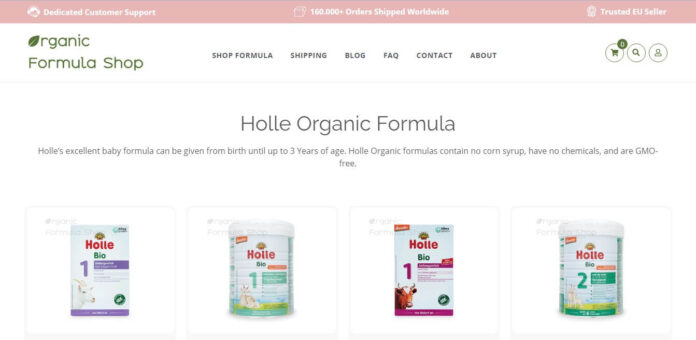Providing the best nutrition for your baby is a top priority as a parent. While breastfeeding is recommended for infants, some parents may need or choose to supplement with baby formula. With a wide range of options available, it’s crucial to make an informed decision and select a healthy baby formula like Holle Formula that meets your child’s nutritional needs. This listicle will explore the essential factors to consider when choosing a safe and nourishing baby formula for your little one.
1. Nutritional Content and Ingredients
The first and most crucial factor to consider when selecting a baby formula is its nutritional content and ingredients. Look for a formula that closely mimics the composition of breast milk, as it provides essential nutrients required for a baby’s growth and development. Key components to check for include proteins, carbohydrates, fats, vitamins, and minerals. Additionally, consider whether the formula includes essential fatty acids like DHA and ARA, which benefit brain and eye development.
2. Type of Formula: Cow’s Milk, Soy, or Specialty
Different types of baby formulas are available, each serving specific needs. The most common type is cow’s milk-based formula, suitable for most infants. However, if your baby has a milk allergy or lactose intolerance, you may need to consider soy-based or specialty formulas for sensitive tummies. Always consult with your pediatrician to determine which type is the best fit for your baby’s unique requirements.
3. Age Appropriateness
Baby formulas are usually labeled with specific age ranges, indicating the developmental stage they are designed for. Selecting a formula appropriate for your baby’s age is essential, as their nutritional needs change as they grow. Newborn formulas are designed to support early growth, while follow-on formulas cater to older infants who have started solid foods but still need supplemental nutrition.
4. Allergies and Sensitivities
If your baby has a family history of allergies or sensitivities, pay close attention to the formula’s ingredients. Some babies may be allergic to cow’s milk proteins or have difficulty digesting lactose. In such cases, hypoallergenic formula or formulas with partially hydrolyzed proteins may be a better option. Always seek advice from a healthcare professional to identify and address potential allergies or sensitivities.
5. Organic and Non-GMO Options
Many parents opt for organic baby formulas like Holle formula, made from organic ingredients and free from genetically modified organisms (GMOs). Organic formulas are produced without synthetic pesticides, hormones, or antibiotics. Choosing an organic or non-GMO formula can provide peace of mind, knowing your baby’s formula is free from potentially harmful substances.
6. Powdered, Liquid, or Ready-to-Feed
Baby formulas come in various forms, including powdered, liquid concentrate, and ready-to-feed. Powdered formulas are convenient and cost-effective, but they require preparation. Liquid concentrates offer a middle ground in terms of convenience and preparation. Ready-to-feed formulas are the most convenient but tend to be more expensive. Consider your lifestyle and preferences when deciding which formula works best for you and your baby.
7. Brand Reputation and Safety Standards
Selecting a reputable and trusted brand is crucial for your baby’s safety and well-being. Research the brand’s history, reputation, and adherence to safety standards and regulations. Look for certifications and approvals from relevant authorities, such as the U.S. Food and Drug Administration (FDA) or the European Food Safety Authority (EFSA).
8. Mixing and Preparation Instructions
When choosing a baby formula, consider the ease of preparation and mixing instructions. Some formulas may require specific water-to-powder ratios or temperature guidelines, while others may have simpler preparation methods. Make sure you are comfortable with the preparation process and follow the manufacturer’s instructions carefully to ensure the formula is correctly mixed for your baby’s safety and well-being.
Read Also: 3 Types of At-home Health Care Services
9. Price and Affordability
Baby formula can be a significant ongoing expense for parents. Consider the price and affordability of the formula you choose, especially if you anticipate using it regularly. While it’s essential to prioritize your baby’s health and well-being, you can explore different brands or subscribe to formula programs to find cost-effective solutions without compromising on quality and safety.
Conclusion
Choosing a healthy baby formula is a significant decision that can impact your baby’s growth and development. Consider factors such as nutritional content, age appropriateness, and any allergies or sensitivities your baby may have. Organic and non-GMO options provide added assurance of a wholesome product, while the type and form of formula should align with your baby’s needs and lifestyle. Ultimately, consulting with your pediatrician can provide valuable insights and guidance in selecting the best formula to ensure your little one receives the nourishment they need for a healthy and happy start in life.







































